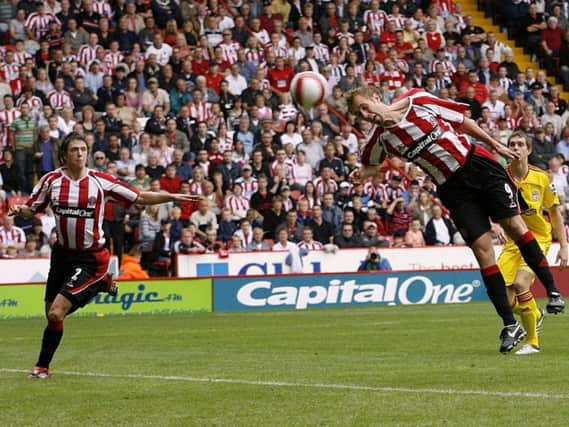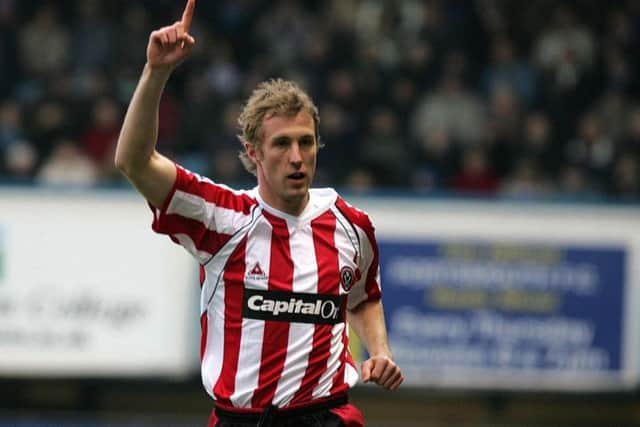Sheffield United: Rob Hulse makes journey from Premier League star at Bramall Lane to NHS physio


Hulse was United's top scorer in their Premier League season in 2006/07, and the broken leg he sustained at Chelsea in the March of 2007 was the beginning of the end of United's top-flight hopes - as they were eventually relegated on goal difference after one season.
Hulse, now 38, retired in 2013 after spells at Derby, QPR, Charlton and Millwall after leaving Bramall Lane, and graduated with a physiotherapy degree after hanging up his boots. Unsurprisingly, there was interest from football clubs, and even a cricket club, in acquiring his services in his new career, but he turned them all down for the NHS.
Advertisement
Hide AdAdvertisement
Hide AdIn an interview with the i, The Star's sister newspaper, Hulse revealed how, after qualifying last summer he started a four-month rotation. He spent four months on the oncology ward, assisting cancer patients, and is now on elective orthopaedics, sorting out joints, muscles and limbs.
“Some people can’t even get up and go to the toilet themselves when I see them,” he says.
“It’s particularly nice when you can help somebody who has been struggling for a while. If you can work with them, get them up over a period of a few days or a week and can progress to getting them on to the toilet properly, there’s nothing better than that.”
Not even, it seems, scoring goals. Hulse admits he is not a big lover of football, although he still keeps an eye on United's results and hopes they do win promotion back to the league in which he shone over a decade ago.


“I watch more ballet than football nowadays,” Hulse admits.
Advertisement
Hide AdAdvertisement
Hide Ad"Football was football. I left it at work. Life is as normal as it was, really. Things haven’t changed much apart from I don’t kick a ball anymore. I still look out for all my old clubs but I don’t watch it much anymore. Don’t get much time to watch the telly with two girls wanting to watch something else.
"After retiring, you have to come to terms with losing yourself. You can no longer say you’re a professional footballer. All the studies around mental health and athletes who retire say it’s a grieving process. You’ve always worked for this and you suddenly have a loss of identity.
“It’s a huge thing, the mental health of sport and the internal and external pressures lads and girls are under. It’s about having a plan, having something other than being a sportsperson. There’s a very narrow focus and then it stops. Having something really helps.”


“I was lucky, it was my choice when to retire," he admits.
"I decided enough is enough, I wanted to do something else, but loads of kids go through the system, almost make it, don’t quite, fall out. Where do they go? Or players will come to the end of their career and not have anything. There should be more help.”
Advertisement
Hide AdAdvertisement
Hide AdNow, after winning three promotions in his career, scoring hundreds of goals and commanding millions of pounds in transfer fees, it's Hulse's time to give something back.
“There are amazing people in the NHS working hard,” he says.
“It is under huge pressure at the moment, but you can see people work really hard. Unfortunately, in my own opinion there is a deliberate, chronic, underfunding there to undermine its very existence. It’s sad and wrong. It’s something that we as a nation should be really proud of and doing whatever we can to protect.
"I’m not saying it’s run as efficiently as it could be but more should be done to protect it; it’s a brilliant institution, for every family in the country the NHS at some point has had or will have a profound effect on them.
Advertisement
Hide AdAdvertisement
Hide Ad“I’m proud to work for the NHS, I think it’s one of the greatest things we’ve ever achieved. I think it’s a basic human right regardless of your basic social-economic status, someone with more money shouldn’t have access to better care.”